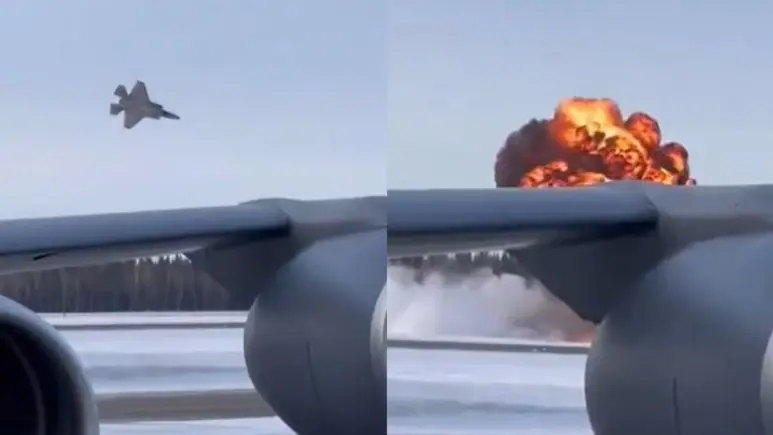August 29: A US Air Force F-35 fighter jet crashed on an Alaska runway earlier this year after its pilot spent nearly 50 minutes on a mid-air conference call with engineers, trying to fix a critical landing gear malfunction. The pilot safely ejected before the jet burst into flames.
What Went Wrong
-
Cause: Ice formed in the hydraulic lines of the nose and right main landing gears, preventing proper deployment.
-
Pilot Actions:
-
After takeoff, the pilot failed to retract the landing gear.
-
When lowering it again, the nose gear locked at a left angle.
-
For nearly an hour, he remained airborne while on a call with five Lockheed Martin engineers, attempting to troubleshoot.
-
Two attempted “touch and go” landings to straighten the jammed gear also failed.
-
-
Final Blow: The jet’s sensors mistakenly detected it was already on the ground, rendering the aircraft “uncontrollable” and forcing the pilot to eject.
Aftermath
-
Inspection: Found one-third of the hydraulic fluid contaminated with water.
-
Weather Factor: Crash occurred in -18°C conditions.
-
Similar Case: Nine days later, another F-35 at the same base faced hydraulic icing, though it landed safely.
-
Accountability: The report cited crew decision-making and poor oversight of hazardous materials as contributing factors.
The Bigger Picture
The Lockheed Martin F-35 programme, often criticised for high costs and production issues, is among the Pentagon’s most expensive projects.
-
Price per jet: Down from $135.8M (2021) to $81M (2024) under a US DoD deal.
-
Lifecycle: Expected to run until 2088.
-
Total projected costs: Over $2 trillion, according to the US Government Accountability Office.










